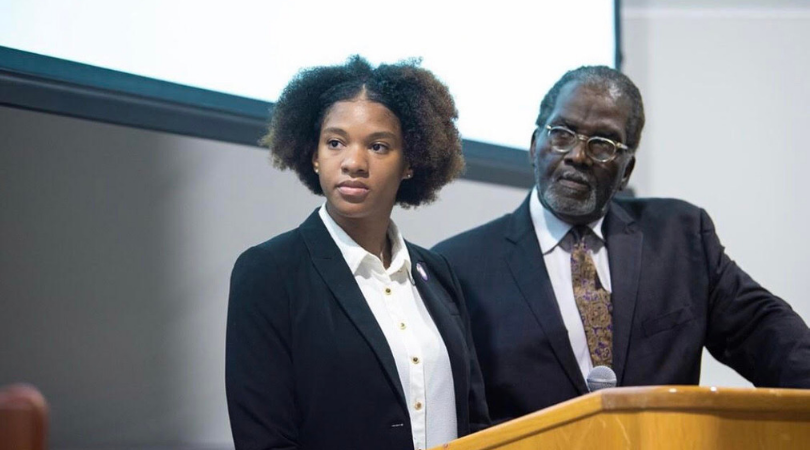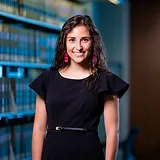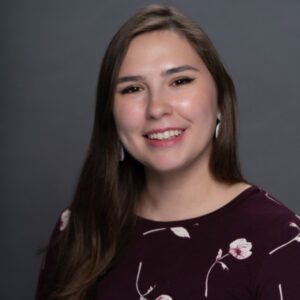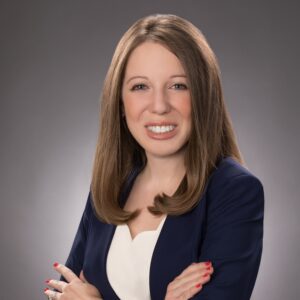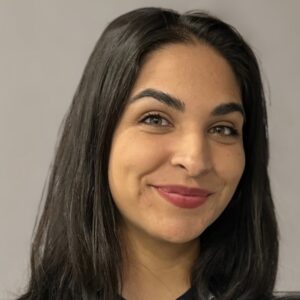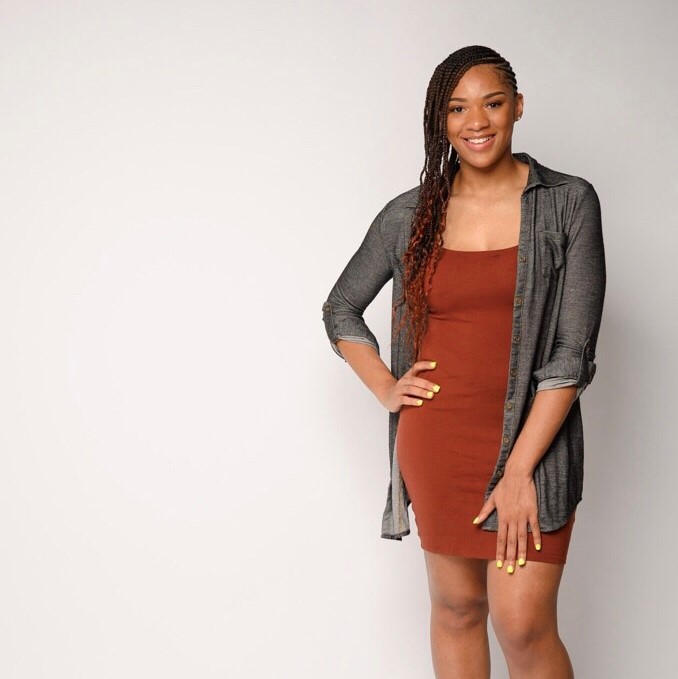
Asha Beacham shook the Dallas-area community when she published her first episode of Tough Topics, a video series that shared controversial opinions on tough topics within the urban community. Asha already has three full-length episodes, tackling the topics of Black feminism, LGBTQ rights particularly with a focus on Black trans-women, and colorism within people of color communities. Asha released her first episode after the murder of her friend, Muhlaysia Booker, a Black transgender woman whose story went viral after she was brutally beaten by a crowd of men in a Dallas apartment complex. But Asha wants to change the narrative surrounding her community, ending the commonality of self-hatred.
Born and raised in Southern Dallas, Asha grew up with her father, Joe Beacham, in Oak Cliff. Asha described her dad as a “very radical person” because he was open to talking about politics from the perspective of the Black community, a community that Asha feels is silenced in the political scene. Asha’s dad believes that the Black community suffers from self-hatred, where people look inward and blame themselves for the baseless negative perspectives they suffer from. As a child, Asha distinctly remembers being sent home from school for wearing her hair naturally, especially since her dad refused to let Asha have a perm that would straighten her hair. Asha also remembers being criticized by classmates for being “too light” or speaking “too white”—this exposed Asha to colorism, or a discriminatory practice where battles occur inter-culturally based on someone’s appearance or skin color. Regardless of the hate she faced, Asha’s father always inspired her to love herself. Asha believed that her dad was pushing her to accept herself for who she is, defying self-hatred.
In addition to her father’s influence, Asha believes she has developed into the leader that she is because of the community she has been surrounded with. As a child, Asha remembers her school celebrating Black History Month by watching civil rights documentaries and taking part in programming that would connect current students to the future of the movement. The more she was exposed to issues within her community, both past and present, the more Asha was able to connect the dots behind the lack of representation she began to recognize. Asha said, “everything made sense—why my life didn’t look like what I saw on tv.” During her childhood, Asha also remembers looking up to her cousin, April Barker. Asha described April as a “real hustler”—someone who worked really hard every day, was always on top of things, and eventually graduated all by herself.
As she grew older, Asha started to seek out information about her community and her culture. In 10th grade, Asha was pushed to join IGNITE, a non-profit that builds political ambition in young women. Through IGNITE, Asha began to meet women like her IGNITE Program Facilitator, Antonia Okafor, who inspired her to become more involved in politics. While Asha says she does not always agree with Antonia, an active 2A activist and Republican, Asha looks up to Antonia as a young and powerful woman, saying “it just makes you think that you can do it too.”
After she graduated high school, Asha went on to attend Paul Quinn College for her undergraduate studies. Thus far, Asha has been given the opportunity to work with the Texas Freedom Network, moderate the highly contested Dallas runoff mayoral debate, and testify against a Texas voter suppression bill (SB9)—all provided to her by Paul Quinn College. Now, Asha is working for Annie’s List, a political incubator for progressive women candidates in Texas.
With these experiences under her belt, Asha realizes that she can do it too. This past month, Asha started the video series called Tough Topics, a conversational piece that allows Dallas area community leaders to share their opinions on controversial topics. This series comes after the death of her friend Muhlaysia Booker, a transgender woman who made national news after she was brutally beaten by a group of men. Asha noticed that Muhlaysia’s attack, along with the violence that has held Dallas hostage this past month, stems from a pattern of self-hatred in the Black community. Included in this self-hatred, aside from colorism similar to what Asha experienced as a child, is hypermasculinity. Asha believes that men have to “prove their manhood” when there aren’t enough resources in a community—when these men can’t provide enough food or a livable wage for their family to live comfortably, men begin to act aggressively. Asha wanted to talk about these tough topics that are disproportionately affecting the Black community. She may not always agree with the opinions being broadcasted on her show but, as inspired by her father’s open political perspective, Asha feels that every community should be able to openly discuss their views.
Asha wants to encourage other women to become involved in their communities as well, telling them “you are enough.” Asha says, “if there is something you don’t know or that you don’t’ have, you have the tools to go learn that thing,” finishing with “you deserve the full package.”
In Loving Memory of Joe Beacham.
